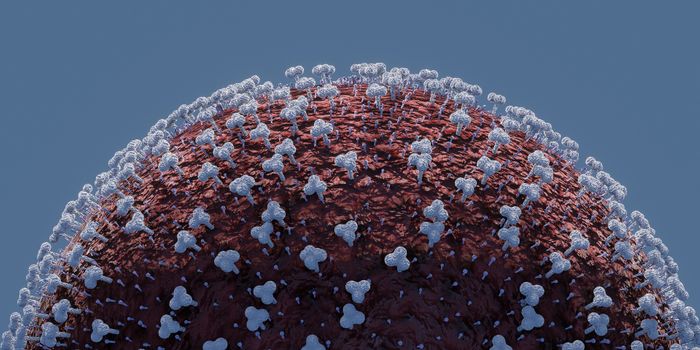Bacteria can Drive the Development of Endometriosis
Endometriosis is a painful disease where endometrial tissue, normal uterine lining, grows outside of the uterus. Endometrial tissue growth can be found around an individual’s ovaries, fallopian tubes, and tissue lining in pelvis. Endometriosis affects about 15% of women of reproductive age (15 – 49 years old) and symptoms include dysmenorrhea (severe menstrual cramps), dyspareunia (genital pain before, during or after intercourse), and infertility. Other symptoms may include dysuria, or pain while urinating, and pain while defecating. Unfortunately, this disease can start at a woman’s first menstrual cycle and last to menopause. Therefore, a treatment to reduce risk is optimal to prevent the many symptoms caused by endometriosis.
While the underlying mechanism for endometriosis is unclear, a known cause of endometriosis is retrograde menstruation. This is when blood flows backward toward the fallopian tubes into the pelvis, as opposed to flowing out of the vaginal canal. Retrograde menstruation can occur in anyone that menstruates. While retrograde menstruation is commonly accepted as the singular cause, some women who do not experience it still develop endometriosis. Therefore, there must be other causes that can lead to endometriosis. A recent study published by Dr. Yutaka Kondo and others from the Nagoya University Graduate School of Medicine in Japan demonstrated that a bacteria known as Fusobacterium drives the production of endometrial lesions.
This study represents the first time scientists have linked a bacterium to endometriosis. After analyzing 155 women in Japan, the group found that more than half of women in the cohort had Fusobacterium infiltration in the endometrium. This novel finding, published in Science Translational Medicine, confirms the importance of bacteria and overall microbiome in human diseases. To elucidate their work, researchers used mouse models to understand the mechanism behind endometriosis. Kondo and colleagues inoculated mice with Fusobacterium and found increased weight and endometrial growth in the inoculated mice. This report clearly states that Fusobacterium has a pathogenic role in endometriosis.
Further analyses were conducted to determine how Fusobacterium increased endometriotic lesions. Kondo and colleagues demonstrated that transforming growth factor-beta (TGF-β), an inflammatory protein, was excreted by Fusobacterium. Additionally, TGF-β release resulted in cells transforming into endometriotic promoting cells which were highly proliferative and could migrate. The role of TGF-β provides insight for how Fusobacterium is directly involved in the development of endometriosis.
Kondo and colleagues wanted to further determine that Fusobacterium was responsible for endometriosis progression. Antibiotic treatment prevented endometriosis from occurring and significantly reduced endometriotic lesions. The antibiotic treatments were administered with two other antibiotics: metronidazole and chloramphenicol. Not only do these data demonstrate that Fusobacterium is responsible for the increased growth of endometriotic lesions, but it also indicates that the progression of endometriosis can be controlled through medication.
Kondo and colleagues have demonstrated the role of Fusobacterium in endometriosis and uncovered TGF-β as the driving protein excreted by Fusobacterium. The findings in the study indicate that Fusobacterium infection is associated with the pathogenesis of endometriosis. Further studies are needed to confirm the role of Fusobacterium, but this study is the first to demonstrate the critical role of Fusobacterium in women’s reproductive health. The work done by Kondo and colleagues is groundbreaking. The study provides insight on improved treatment for women with endometriosis and for women who have a family history of endometriosis.
Study, Yutaka Kondo, Science Translational Medicine, Nagoya University








